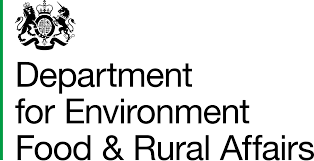The press release issued by the Department for Environment, Food and Rural Affairs on 27 February 2023.
The Great Britain Invasive Non-Native Species strategy sets out enhanced vision on prevention, eradication and management of invasive non-native species.
A new action plan to protect Great Britain’s biodiversity, ecosystems and economy from the growing risks posed by invasive non-native species will be unveiled by Defra today (27 February), in partnership with the Scottish and Welsh Governments.
Non-native species are one of the top five drivers of biodiversity loss globally with new figures showing an estimated cost to the British economy of £1.84 billion per year. There are currently around 2000 non-native species in Britain with 10-12 new species establishing themselves every year.
They disrupt habitats and ecosystems, prey on or out-compete native species, spread disease and interfere with the genetic integrity of native species
Climate change is expected to increase the risks from new non-native species due to more frost-free winters and increased flooding events. Habitats that are suffering for degradation may also be more vulnerable to invasion and disease, increasing the risk to biodiverse natural habitats.
The newly updated Invasive Non-Native Species Strategy sets out a new framework for tackling the existing and growing threat posed non-native species with a commitment to reduce establishments of non-native species by at least 50 per cent compared to 2000 levels, in line with the internationally agreed CBD Target 6 on Invasive Alien Species.
This follows work to date to mitigate invasive species. Since 2015 we have eliminated the American Bullfrog from Great Britain and there are successful eradication programmes in place for the Ruddy Duck and Topmouth Gudgeon, a type of freshwater fish.
Preventing, eradicating and managing invasive non-native species will underpin the delivery of the strategy domestically with enhanced alignment across Great Britain and with other biosecurity regimes, such as plant health.
Specific actions include increased capacity for inspections at the border and post-border, further assessment of the most high-risk routes and mechanisms for the introduction and spread of Invasive Non-Native Species and further improvements to our rapid response systems.
Lord Benyon, Minister for Biosecurity, said:
Invasive species threaten the natural world and our economy. Today’s announcement demonstrates this Government’s unwavering commitment to protecting against these species, for the immediate benefit of the country and future generations.
Through coordinated actions across Great Britain to prevent the arrival of new non-native species and tackle the impacts of those established – we can minimise the potentially devasting environmental and economic impacts these species cause. A vigilant public can also play a key role and report any suspicious sightings of new invasive species to ensure it is accurately identified.
Scotland’s Biodiversity Minister Lorna Slater said:
This refreshed strategy will enable continued collaboration between the devolved governments to tackle the spread of invasive species and the harms these can cause to native wildlife, our natural environment and even our economy. It will complement our new Scottish Biodiversity Strategy, which recognises invasive non-native species as a major driver in biodiversity loss and sets out the actions we are pursuing to control and eradicate them.
Here in Scotland we are also funding a number of large-scale projects to control invasive species through our Nature Restoration Fund as well as developing a range of measures aimed at tackling established INNS such as Rhododendron, whose spread is a major threat to native woodlands including Atlantic Rainforest.
Minister for Rural Affairs Lesley Griffiths said:
I welcome the launch of this strategy. Invasive non-native species can pose a significant threat to our environment, and this threat is likely to be increased by climate change. The strategy sets out actions to help protect biodiversity, people and the economy from invasive non-native species.
This strategy delivers on commitments set out in the Environmental Improvement Plan to deliver a refreshed Invasive Non-Native Species Strategy. It follows the publication of the Plant Biosecurity Strategy last year which set out a five-year vision for plant health, consisting of an action plan to secure national biosecurity, protect native species and drive economic growth.
The strategy also emphasises the collective role and responsibilities we all have in upholding high standards of biosecurity, for example by cleaning equipment that has been used in one environment before moving it to another, and the importance of choosing and planting the right plants and trees in our gardens to avoid the spread of invasive non-native species. The public can report any suspicious sightings of new invasive species via iRecord, which is a tool to bring together wildlife sightings from many sources, so that they can be checked by experts and made available to support research and decision-making. These messages align with long running UK Government awareness raising campaigns: ‘Check Clean Dry’ and ‘Be Plant Wise’.
